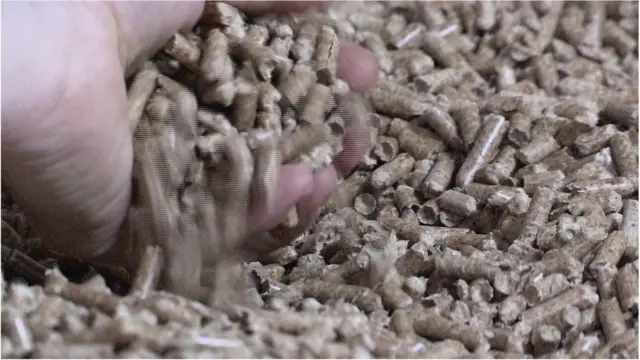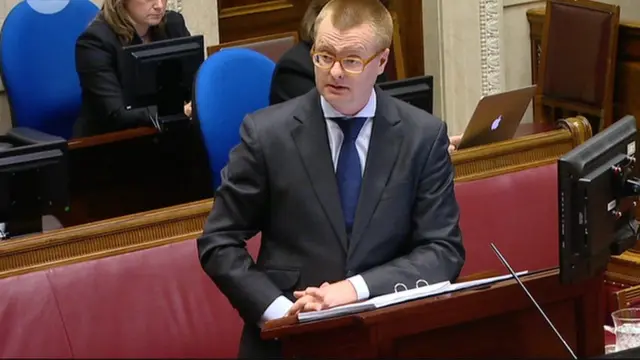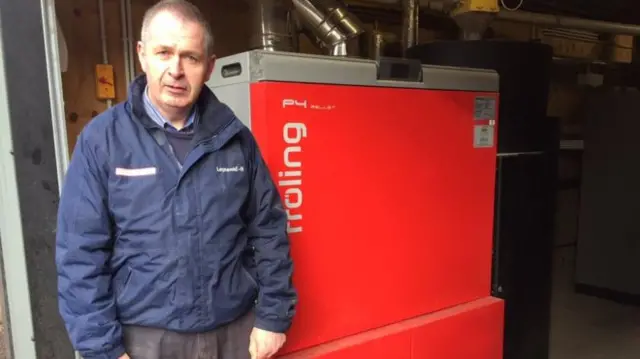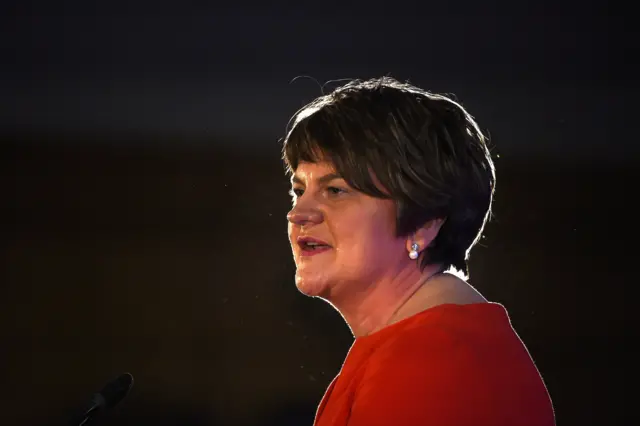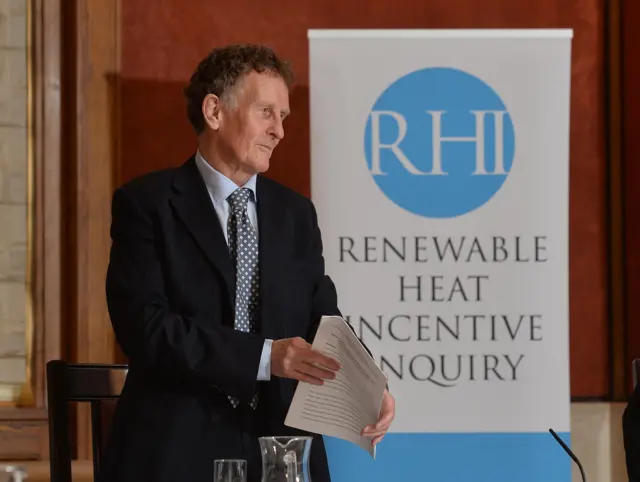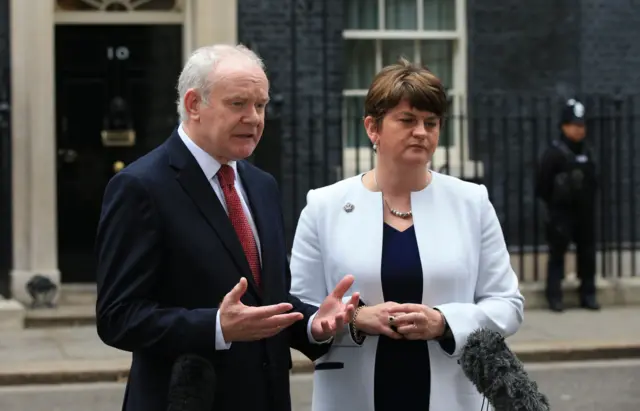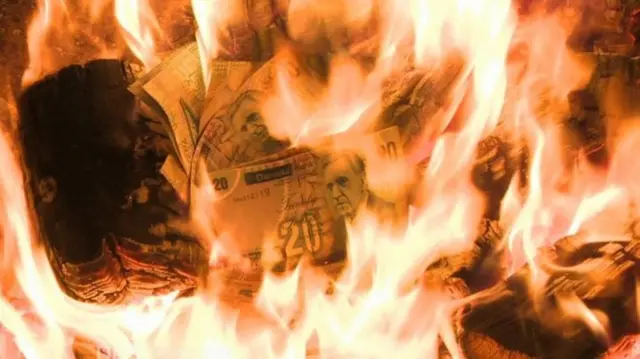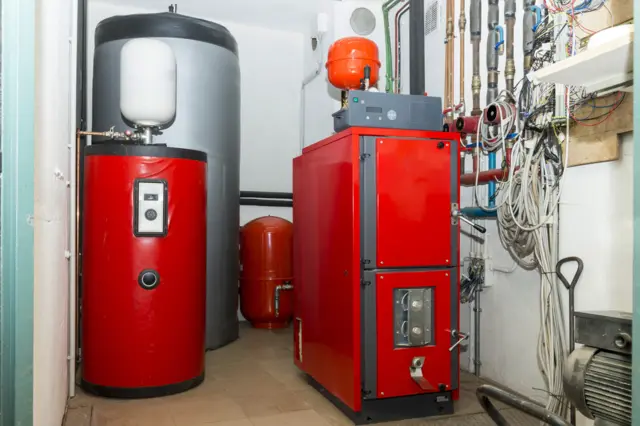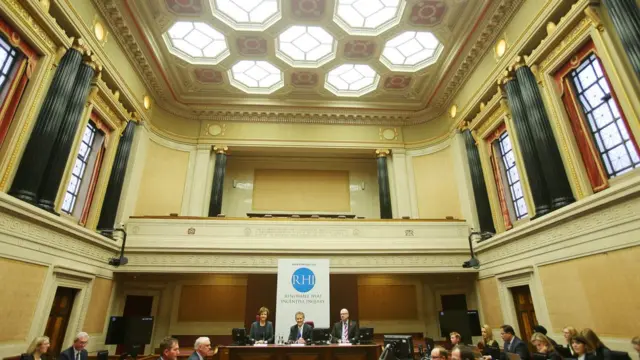'DETI was on notice about GB RHI controls'published at 10:42 GMT 7 February 2018
A Department for Energy and Climate Change (DECC) policy document regarding the domestic RHI scheme in Great Britain was shared with DETI in June 2013 ahead of its publication.
Mr Aiken says that DETI was now "formally on notice" that the GB domestic scheme would have a digression mechanism - a cost control method - built in.
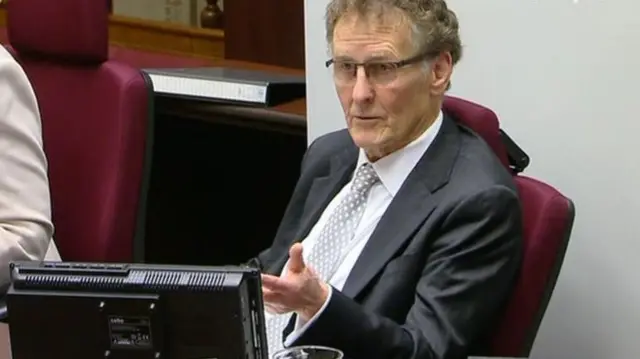 Image source, RHI Inquiry
Image source, RHI InquiryInquiry chair Sir Patrick Coghlin notes that DETI knew this in the context that "they have no emergency cost controls (and) they have no digression".
And the GB non-domestic scheme already had digression.
